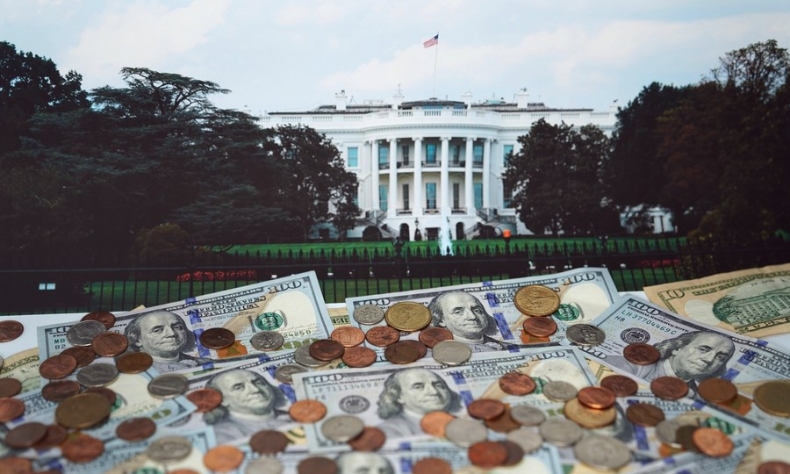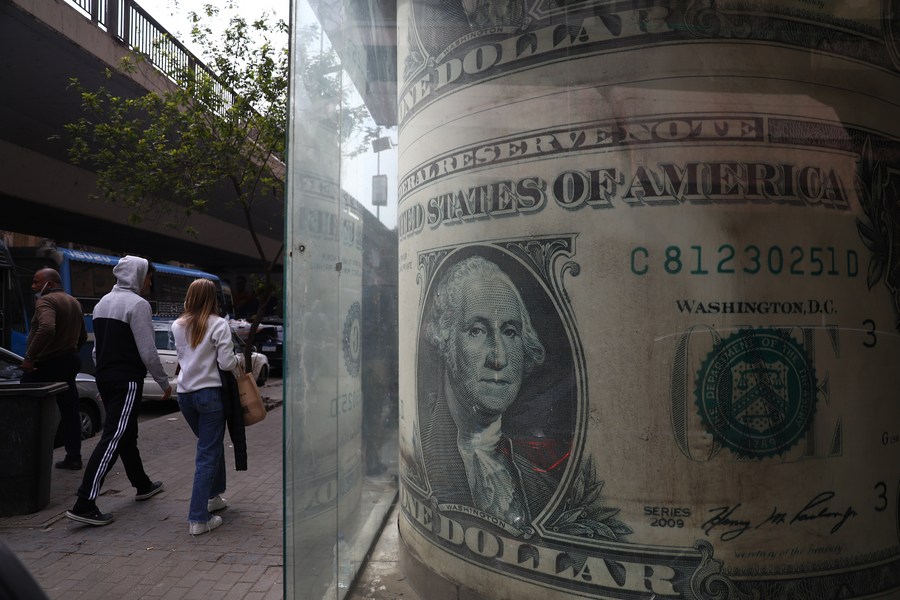De-dollarization Is Trending and There’s No Turning Back

The U.S. dollar has been weaponized as a tool to impose punitive measures against any nation that would oppose the U.S. foreign policy agenda.
The U.S. dollar has long stood tall as the pre-eminent global currency for international cross-border trade settlements and foreign exchange reserves ever since the launch of the Bretton Woods institutions – International Monetary Fund (IMF) and World Bank (WB). Washington has become an economic powerhouse by placing the U.S. dollar in a position of strength. Consequently, most nations were expected to rely on the almighty American currency to expand their foreign trade and investments.
The actions went into high gear with the emergence of the petrodollar starting in the 1970s when Middle East countries had to settle all their cross-border oil and gas deals in U.S. dollars. Additionally, new banking technologies have increased the dollar’s stranglehold over the international economy.
Nearly all bank wires worldwide require a foreign currency exchange to use the U.S. dollar. So let’s say a Singaporean is wiring funds from his bank account to a client in Seoul, South Korea. He must get his Singaporean dollars exchanged to U.S. dollars in order to buy Korean Won in a Swift bank wire transaction.
Meanwhile, Washington had succeeded in the post-World War II era by forming military alliances with many European nations, as well as with Australia, New Zealand, Japan and South Korea in the Asia-Pacific region in order to boost trade among partner nations. The push for a strong U.S. dollar would make the U.S. economy dominant on the world stage. By enforcing ‘strong dollar diplomacy’, Washington could influence the domestic politics and global affairs of many sovereign nations and regional governments.
Allies of the U.S. could not assert greater autonomy as they would risk getting sanctioned or isolated from the international business community. Therefore, the U.S. dollar has been weaponized as a tool to impose punitive measures against any nation that would oppose the U.S. foreign policy agenda. And for many decades, this geopolitical strategy was very effective.
No nation stood willing to take real actions to counter-act it. Nonetheless, times are changing and a new global economic order is emerging that is multi-polar not unipolar.

Asian Monetary Fund could be game-changer
Washington enjoys its superpower status and won’t allow for the U.S. dollar weaken as a status symbol without a fight. But in 2012, the U.S. had imposed backbreaking sanctions on Tehran, blocking Swift in Iranian banks and placing embargoes on Iranian energy exports.
The U.S. expanded its strong dollar hegemony when placing similar restrictions on Russia last year. But by bullying Iran and Russia, many other nations began to worry that a strong U.S. dollar could place them at greater harm if Washington sanctions more nations.
Asian countries are the most vulnerable and talks are now underway to explore setting up the Asian Monetary Fund (AMF) that could protect the Asian markets if Washington marches ahead on increasing its nations’ list for sanctions.
Accordingly, the proposal for AMF is a smart move. Malaysian Prime Minister Datuk Seri Anwar Ibrahim sparked much talk when he disclosed that he met with Chinese President Xi Jinping in Hainan last month and they discussed the AMF. Yet as a reminder, this should not infer that any pledges of guarantees were made. Nonetheless, PM Anwar’s statement could reap great rewards for those willing to jump on the bandwagon.
Anwar when serving as Malaysia’s finance minister in the 1990s had initially endorsed the AMF in the aftermath of the Asian financial crisis in 1997, but plans were shuttered.
“At that time, it did not gain much attention in Asia because the U.S. dollar was considered very strong. But now, with the economic strength of China, Japan, and others, I think it should be discussed,” PM Anwar is quoted as saying in media reports.
Malaysia’s central bank and the PBOC (People’s Bank of China) have also taken steps to conduct trade deals only using the Malaysian ringgit and Chinese yuan. “There is no reason for Malaysia to continue depending on the dollar,” PM Anwar added.
We are witnessing Malaysia play a larger role in Asia by supporting the AMF and “de-dollarization”.

BRICS garners strength away from the dollar
Another major trend emerging is the rise of BRICS (Brazil, Russia, India, China and South Africa) as a formidable regional bloc. The BRICS is challenging the G7 (U.S., UK, France, Italy, Japan, Canada and Germany) member states as a global power player. More nations are expressing eagerness to join BRICS, including Saudi Arabia and Iran as they had earlier announced they have entered into the formalization process for membership.
Other nations including Egypt, Algeria, UAE (United Arab Emirates), Mexico, Argentina and Nigeria said they intend to request membership as well. The G7 represents the developed nations while BRICS favors the emerging markets. China is a top trading partner for many countries in the Asia-Pacific, Africa, Middle East and Latin-America regions.
The BRICS member states are set for greater prosperity since many of them hold an abundance of natural resources. Talks are underway to propose a new currency project that could be announced at the upcoming BRICS summit to be held in Durban, South Africa this August.
According to the Peoples Dispatch, at the Russian-Indian Strategic Partnership for Development and Growth Business Forum in New Delhi, Deputy Chairman of Russian State Duma Alexander Bobakov announced last month, the bloc’s members have made key moves away from the U.S.-dominated international trade and financial system.
“The transition to settlements in national currencies is the first step. The next one is to provide the circulation of digital or any other form of a fundamentally new currency in the near future.”

U.S. sleepwalking into de-dollarization
Washington has acted largely dismissive towards BRICS and slow to respond to the de-dollarization trends. While the entire world sees America headed for imminent decline, U.S. citizens have not. One is left to wonder if Americans are acting willfully ignorant or just blinded by arrogance. As the saying goes, “pride comes before the fall.” Should the de-dollarization come into fruition, the U.S. will lose out on its dominant role in world affairs and the global economy.
But that might not be bad news for the rest of the world. French President Emanuel Macron visited China last week and suggested Europe should reduce its dependence on the “extraterritoriality of the U.S. dollar,” according to Politico.
“If the tensions between the two superpowers (China and U.S.) heat up … we won’t have the time nor the resources to finance our (European) strategic autonomy and we will become vassals,” he added.
The world is waking up to de-dollarization, while the U.S. is still sleepwalking.
The article reflects the author’s opinions, and not necessarily the views of China Focus.
 Facebook
Facebook
 Twitter
Twitter
 Linkedin
Linkedin
 Google +
Google +



